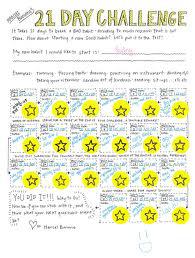Having troubles recalling people’s names? It happens to almost every person from time to time. Some people easily forget and some have sharp memory. Which side do you want to be on? Since we are babies until we become adults, we are hearing our names. It’s the most important word in the world for us. For that reason, simply calling people by their names can have a tremendous positive effect. In fact the simple art of remembering names is a key to open many doors and maintain initial bonds with anyone we meet. I found this skill particularly easy to learn, and most beneficial to practice. Remembering names is actually very simple. You just have to focus and discipline yourself. Here are some of my Name Memory Techniques I can share:
When you are introduced to a new person, repeat his/her name. Confirm you heard and pronounced it right. Ask them to spell it out perhaps, especially if it’s foreign.
- Once you got their name, keep on repeating his/her name on your mind.
- Match the person’s name with somebody you know that has the same name or distinct character she/he has. When the new person has a name you already know, you can easily link them together (and the reverse when meeting people with strange Nordic or Chinese names). Think what does this new John have in common with the the other John I knew? Ahhh, I have it, he is tall and funny like the other John.
- Creative linkings are also effective memory techniques. For example, I have a friend in Switzerland called “Tudors.” For him, I imagine two doors opening from his face and inside is a little Tudors laughing. Funny associations work best! Perhaps you can Imagine someone called “Ali” bouncing around like Mohammed Ali singing his famous quote, “float like a butterfly, sting like a bee.”
- Another creative association could be bees flying out of Bebe’s nose. Or imagining a cat running around “Catherine” (Cat-a-run) hair.
- To help the link particularly if its weak, repeat their name in conversation,“Nice to meet you John.” “Wow John that’s amazing.” The more it’s used the more likely it is to be remembered.
- Introduce the people to each other, “Michael, have you met John and Catherine?”
- When leaving, don’t forget to say their name one last time.
- To reinforce the name even further. Just before going to sleep, remember all the people that you met that day repeat all their names and something you remember about them such as where they were from, their hobby or job.
- A side note, a good networking technique is obviously to collect business cards or to write down their details; however jot down a little longer note. Perhaps something about your conversation, or something that you talked about with them to help you recall the person and conversation. Then if you call them back in future you will be able to recall the person much clearer and it will be easier to gain their support.
Now that you have the techniques, you just have to set yourself a reminder to practice them regularly. 21 Day Theory will do the trick! For the next couple of months, in all of your future events, practice these techniques. Next thing you know, you will be walking out events saying goodbye to everybody with not just a handshake but being able to confidently recall everybody’s name. You may even feel the new power as you walk out the door. Simple and effective. You just have to choose to do it. Then make it a habit. Do you have your own Name Memory Techniques? Feel free to share it with us!


